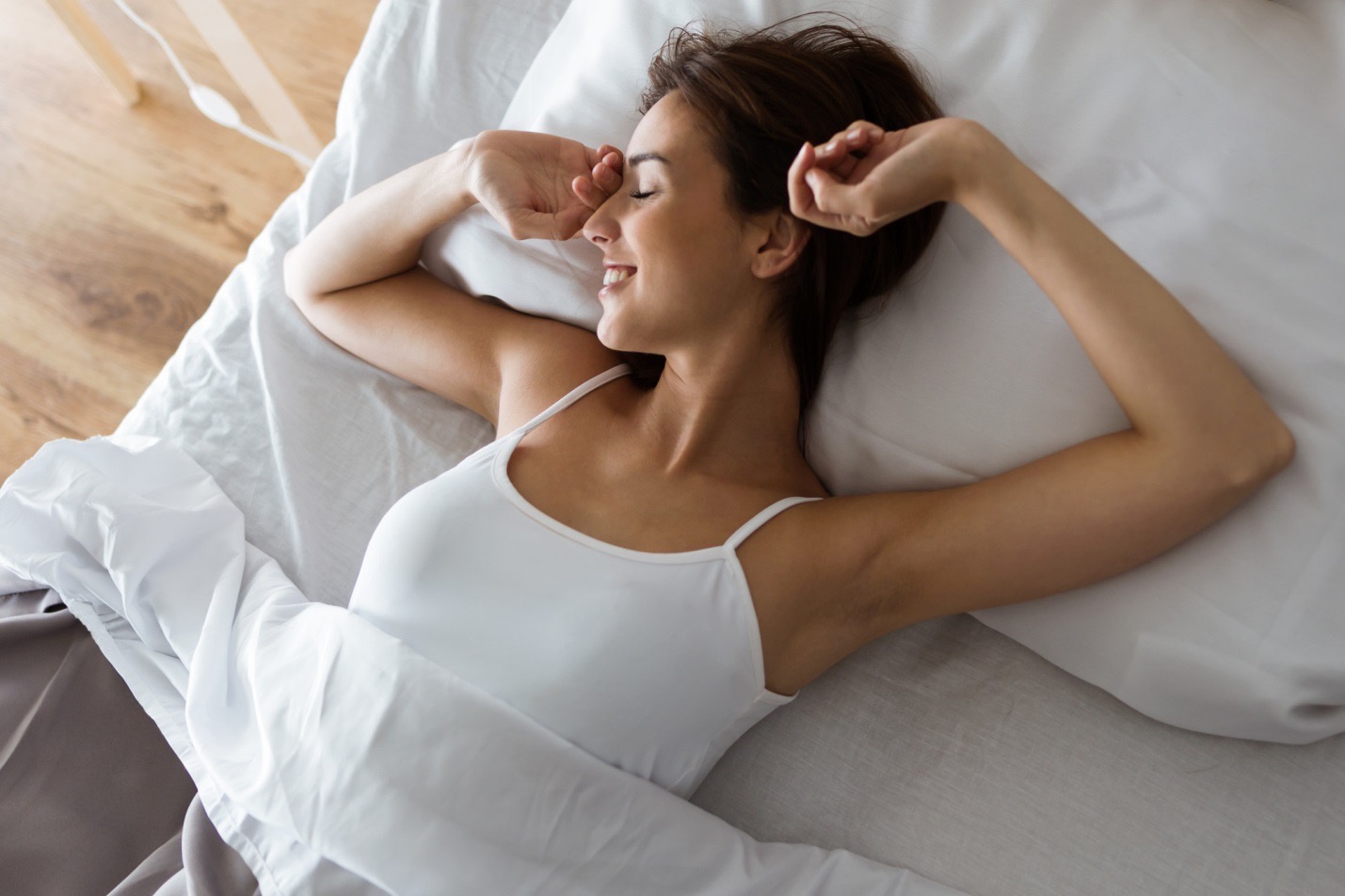According to the Center of Disease Control (CDC), more than one-third of U.S. adults routinely sleep fewer than six hours a night. Without the proper eight hours of sleep, our bodies become vulnerable to a wide range of health issues, such as heart disease, high blood pressure, stroke, and depression. How you sleep also lays a foundation for your energy, strength, and resilience throughout the following day.
With the stress brought on by the pandemic, it is no surprise that more Americans are now reporting taking over the counter melatonin supplements to help improve their sleeping habits and get a good night’s sleep. While melatonin is known for improving your sleep-wake cycles, it can often be known to produce more side effects than necessary. These side effects can include headaches, fatigue, grogginess, dizziness, or daytime sleepiness.
READ ALSO: Mountain Shadows and Hotel Valley Ho offer chic sleep packages
For those having trouble falling or staying asleep at night, it is important to determine what may be impacting your sleeping habits and the best approaches to getting a better night of rest. While over the counter supplements, such as melatonin, might be your first instinct to improve sleep, there are several natural approaches and treatments that can often be more effective.
Now more than ever, doctors across the United States have seen the value of recommending holistic remedies for various health-related issues, including sleep. What are some holistic ways to catch some z’s? Here are four natural ways to improve sleep.
Create a consistent sleep routine.
Developing a consistent pattern is one of the best ways to improve your overall sleeping habits. Going to bed at the same time and striving for the same amount of sleep each night allows the neurotransmitters such as serotonin and melatonin to balance and be created naturally. This way your body can sleep without the need for such supplements.
Your diet affects your sleep more than you know.
An unhealthy diet is one of the top reasons that people are feeling like they didn’t get a good night’s rest. Many of the neurotransmitters are produced in your GI tract, and so poor diet decreases natural production of serotonin and melatonin. Therefore, if the GI tract is not healthy, restful sleep is more difficult. Stay away from carbohydrate heaving foods like French fries, bread, and pizza. There is a large link between these types of foods and an increase of drowsiness, poor sleep and other health related problems.
A good rule of thumb is to create a well-balanced diet with protein, vegetables, and fruits to boost your physical health and your sleep. Often times, the difference between poor and restful sleep is linked to food allergies/sensitivities which can be tested by your naturopathic physician. If you are looking to make a huge change in your diet, it is important to consult your naturopathic physician to determine what is best for you.
Put your phone down and get some exercise.
As you’re scrolling through social media timelines and watching the latest viral video, you’re missing out on the perfect opportunity to get some exercise and boost your sleep. Going on a walk with your dog, swimming in the summer, or participating in a group workout class cannot only help reduce your social media usage, but more importantly… sleep. Stopping social media and keeping the phone away from yourself around bedtime will allow your body to decompress and will train the brain to not need to check the phone at night. This not only reduces stress but improves the quality of sleep.
Don’t consume alcohol or caffeinated beverages right before you go to bed.
At the end of a hard workday, it can be tempting to reach for your favorite wine or hard seltzer as you watch television to wrap up the night. Alcohol beverages, a depressant to the system, will decrease neurotransmitters in the body and create an imbalance therefore a lack of meaningful sleep.
As you head to work early in the morning, caffeine may be your best friend, but not at night. The caffeine is a stimulant and increases adrenaline in the body which will affect one’s ability to sleep. Skip the soda and drink a glass of water or your favorite non-caffeinated chamomile tea.
It is easy to reach for the medicine cabinet for a sleeping pill or supplement, but it is important to remember that sleep is the foundation to everything you do. Relying on sleeping medication is not the best long-term solution and has many side-effects with extended use. Improving your sleep schedules will enhance your health, improve your energy, and produce better quality sleep.
Author: Dr. Steven Katz is the owner of the Naturopathic Physicians Group located in Scottsdale, Arizona. Dr. Katz is a Licensed Naturopathic Physician trained in IV therapy, neurological conditions, pain management, digestive disorders, and restorative treatments. He takes the time to educate his patients on their health, as he understands that this is the best approach to long-term success. Dr. Katz’ passion for naturopathic medicine does not stay isolated to the clinic. He is also the former President and Treasurer of the Arizona Naturopathic Medical Association. Naturopathic Physicians Group has been treating a wide range of health challenges since 2004. For more information or to make an appointment, visit naturopathicgroup.com.




